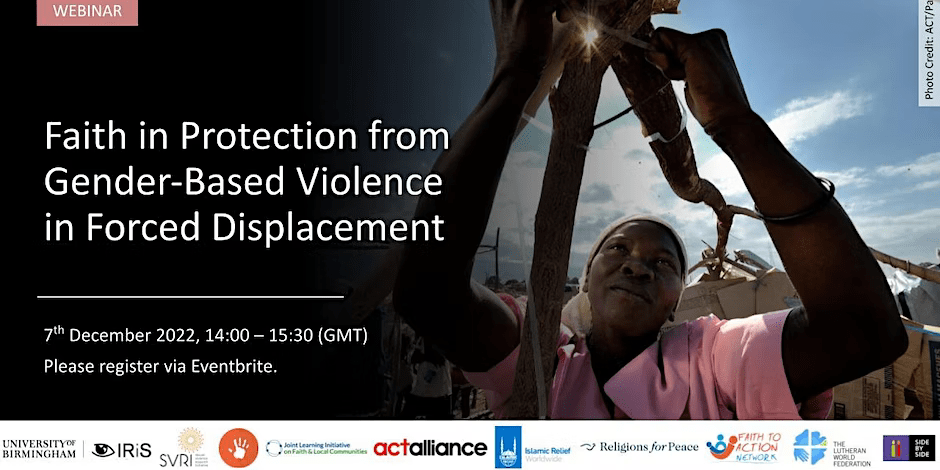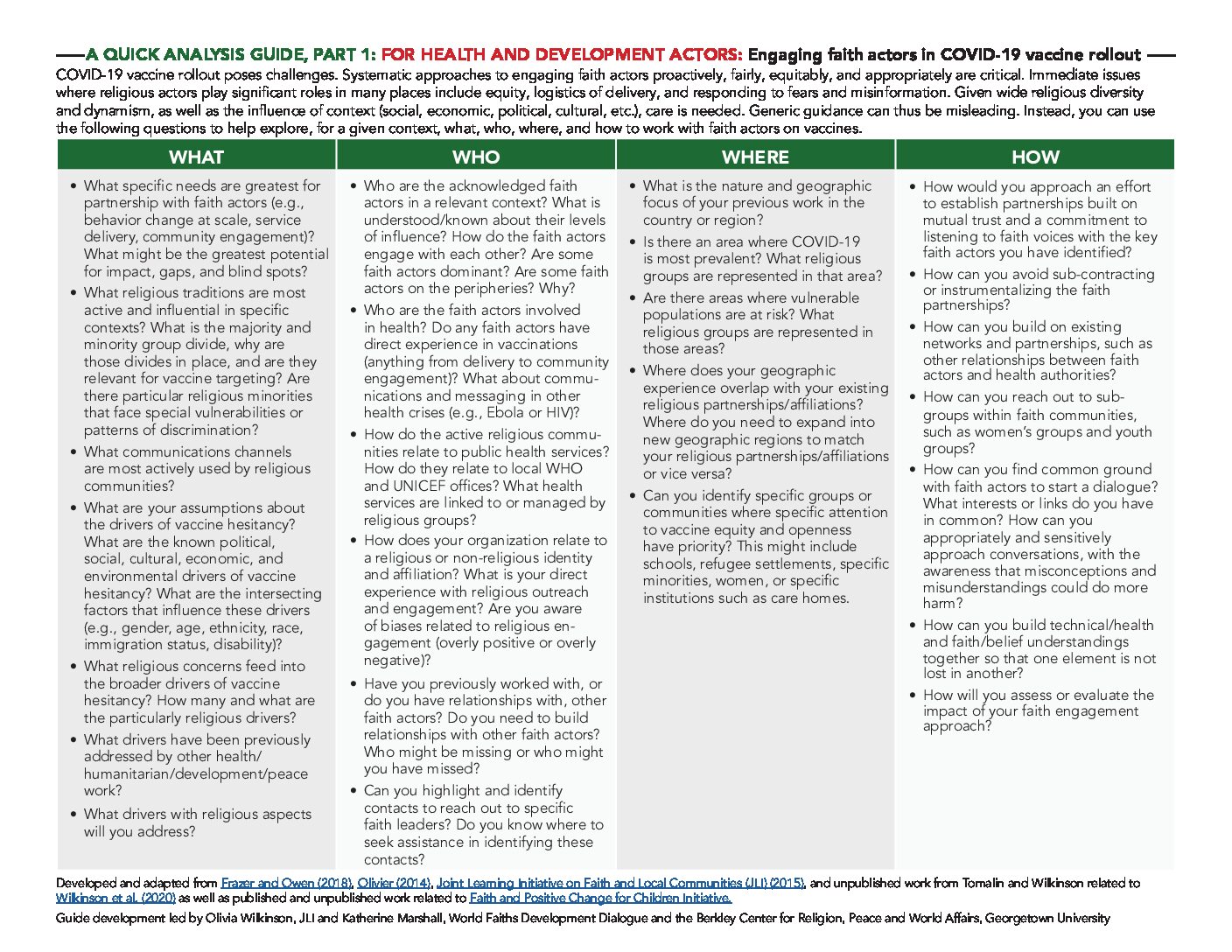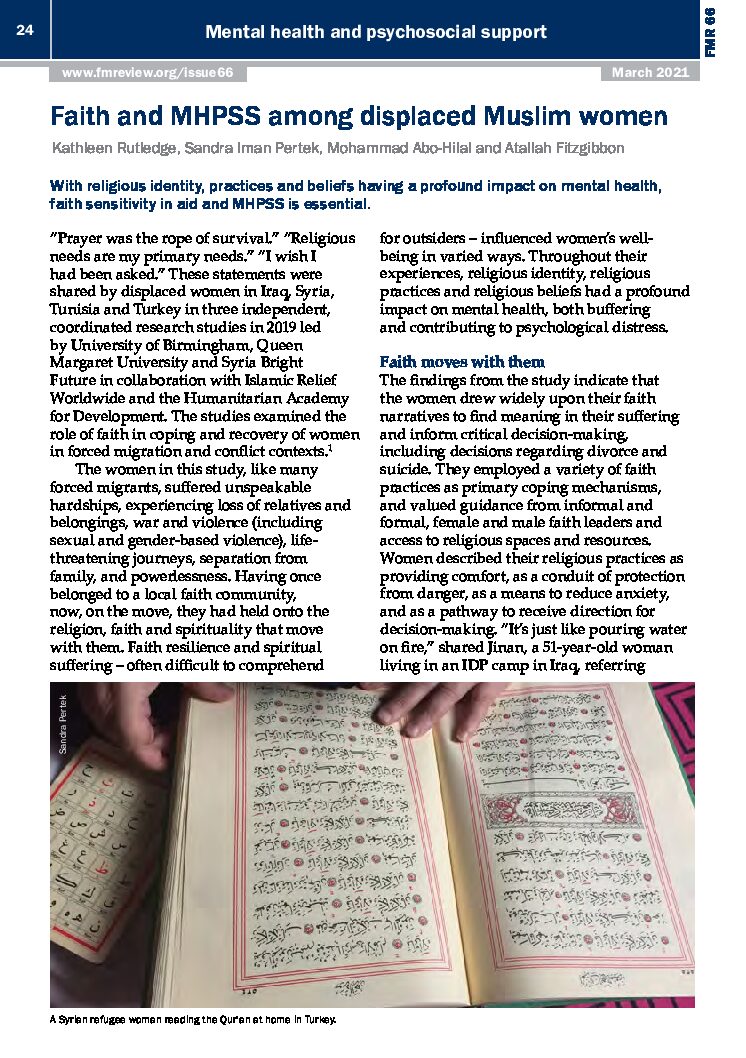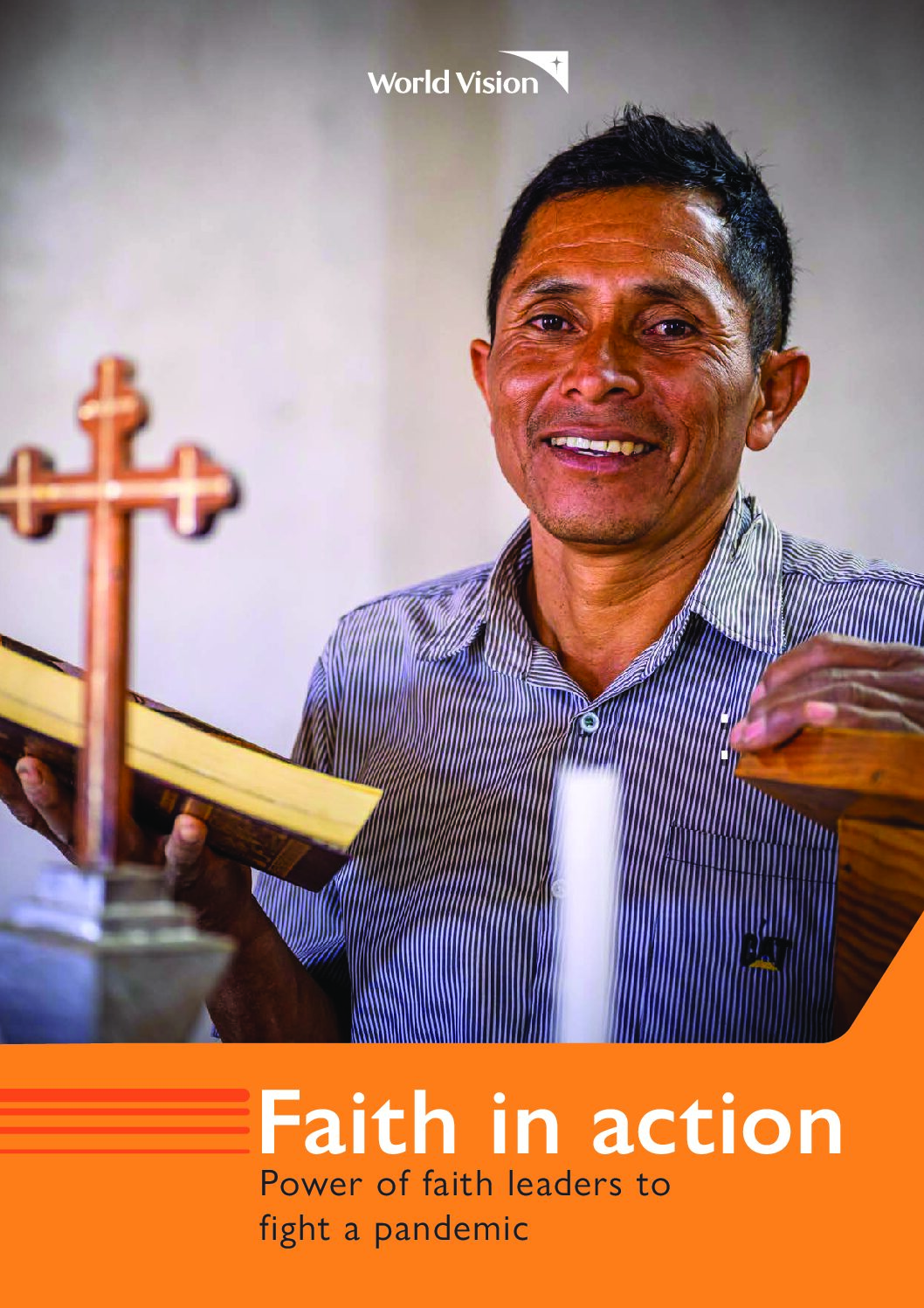Date/Time
Date(s) - 07/12/2022
2:00 pm - 2:30 pm
Categories
We are pleased to invite you to the first webinar of the Series “Faith in Protection from Gender-Based Violence in Forced Displacement”, which explores the intersection between gender-based violence (GBV) and religion in forced migration. It is organised by multi-stakeholder collaborators including: Act Alliance, SVRI-JLI Religion & GBV Hub, Religions for Peace, LWF, IRW, Faith to Action Network, Side by Side Movement, and the University of Birmingham. We would be delighted for you to join our discussions to help identify opportunities and challenges of religious engagement in GBV.
The webinar seeks to explore how religious engagement in protection from GBV in forced displacement could be strengthened in the humanitarian sector. It provides a platform to exchange experiences and lessons learnt among faith and secular actors in relation to protection from GBV against forced migrants. The webinar discussions will help build evidence of the role of faith actors in responding to GBV in forced displacement emergencies and to co-develop recommendations for religious actors and secular organisations on how to work with religious dimensions to support responses to GBV in forced migration.
There are over 100 million forcibly displaced people, around half of whom are women and girls. When forced to migrate, women and girls face specific vulnerabilities, but increasing evidence suggests that men and sexual minorities are also vulnerable. Risks include heightened exposure to gender-based violence (GBV) including structural and interpersonal violence. Violence occurs on a continuum during conflict, flight, at borders, in camps, detention centres and in refuge. Religion remains an important concern for most of the global population, including displaced people, with more than eight in ten people identifying with a religious affiliation (PEW, 2010). Religion, faith and spirituality are often an integral part of forced migration experience, shaping people’s resilience and vulnerability. In crises, people turn to religion for meaning and relief from anxiety, yet religion can be also a source of discrimination and disadvantage. Religious actors are acknowledged as often the first respondents to crisis, however the secular frameworks of protection from GBV often overlook their engagement.
This webinar will bring together humanitarian faith-based and secular organisations, local faith leaders and community members supporting refugees and forced migrants on the ground, protection and GBV non-specialists and specialists.
Agenda:
- 14:00-14:05 Welcome
- 14:05-14:20 Research perspective: “Forced displacement and the continuum of violence: why does religious engagement matter?” by Dr Sandra Pertek from the University of Birmingham, IRiS
- 14:20-14:45 Practical panel discussion: to identify next steps for enhancing religious engagement in protection from GBV in forced displacement and supporting displaced survivors. Panellists include:
- Caroline Tveoy, Regional Programme Coordinator, Middle East, Lutheran World Federation (LWF)
- Florence Nassanga, Chairlady of Religions for Peace Uganda, Women of Faith Network
- Prof. Anita Burgund Isakov, University of Belgrade
- Christian Wolff, Migration and Displacement Programme Manager, Act Alliance
- Sana Basim, Head of Programmes, Mission East
- 14:45-15:15 Group discussions for all participants: to identify key opportunities and challenges for religious engagement in GBV responses in forced displacement
- 15:15-15:30 Plenary and group debriefs, wrap up
For more information and registration, click here.




